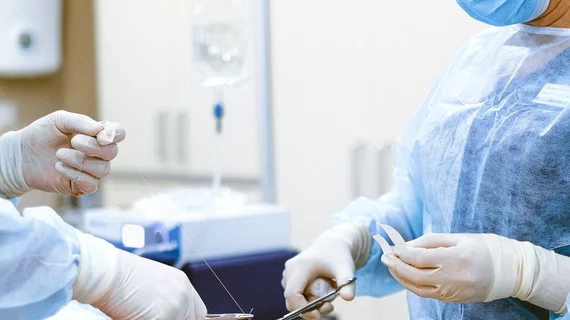AI finds forgotten surgical instruments in patients’ bodies
Noting that surgical sponges account for 70% of instruments and supplies that inadvertently get left behind in patients’ bodies, researchers say they’ve designed AI software that can flag these “retained” items with good to excellent accuracy.
The work was conducted at Nagasaki University in Japan and is published in Journal of the American College of Surgeons.
The AI-equipped computer-aided detection tool performed best when tested with phantom X-rays, notching 100% scores for both sensitivity and specificity.
Sensitivity was similarly strong with composite X-rays and normal postoperative X-rays, and the scores topped 90% with sponges planted in human cadavers.
Because the incidence of retained surgical sponges is only about 1 per 10,000 operations, the tool’s negative predictive value should be close to 100% when using the software in actual clinical practice, senior author Susumu Eguchi, MD, PhD, and co-authors point out in their discussion.
They further note that, in Japan, patients are routinely X-rayed following surgery. The AI CAD could therefore search for left-behind instruments automatically.
Encouraged by the success of the experiment, Eguchi and colleagues say they are considering training clinicians to use the software in clinical settings.
More:
The biggest advantage of our software is that it does not require the additional costs of changing surgical materials or introducing new hardware. … The only additional steps required for this diagnosis method are the activation of the software on the portable radiograph device and the interpretation of the software results.”
Among the limitations the authors acknowledge in their study design is its concentration on surgical sponges to the exclusion of other instruments.
The study is available in full for free.

